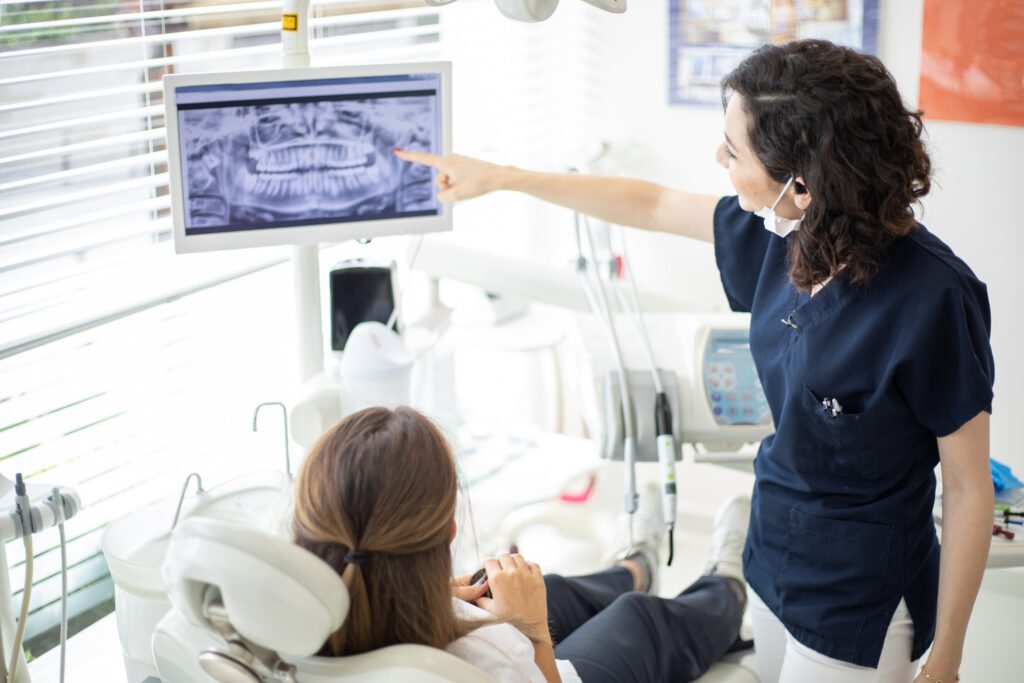The temporomandibular joint, or TMJ, connects the mandible (lower jaw) to the temporal bone (the bone at the side of the head). The flexibility of these joints enables a person to move his jaw up and down smoothly. During this movement, the rounded ends of the lower jaw, called condyles, glide along with the joint socket of the temporal bone. For its smooth movement, a soft disc lies between the condyle and the temporal bone and absorbs shocks to the jaw joint from chewing and other movements.
TMJ disorders (TMD) cause dysfunction and pain in the face, teeth, and jaw. Our dental team offers restorative dental treatments to relieve pressure on the TMJ and restore comfort to patients’ smiles.

What Are Common Signs of TMD?
Temporomandibular joint disorders are conditions that induce pain and dysfunction in the jaw joint and the chewing muscles that control the up and down jaw movement. A person suffering may experience any of the following:
- Myofascial pain: Discomfort or pain in the muscles that control jaw function.
- Internal derangement of the joint: A displaced disc, dislocated jaw, or injury to the condyle.
- Arthritis: A group of degenerative/inflammatory joint disorders that can affect the temporomandibular joint.
Treating TMJ Disorders in Tampa, FL
The majority of TMJ disorders reduce with time and ultimately disappear. However, in some instances, the symptoms may continue or reoccur from time to time. Some of the ways to treat TMJ disorders are:
- Physical exercises and lifestyle changes: Simple physical activities and small lifestyle changes can fix most TMJ disorders cases. One should also consume soft foods until the symptoms recede, not chew gum, and avoid teeth grinding and clenching. Physical therapy can help relieve tension in the face and body to minimize TMD symptoms.
- Botox Therapy: Botox injections can treat chronic TMJ disorders. A cosmetic specialist can inject Botox into the facial muscles to keep them relaxed and alleviate pain. These injections also treat headaches due to teeth grinding, clenching, and stress.
- Occlusal Adjustments: We can modify the bite and the tooth surfaces to fix crooked teeth or bad bites. Invisalign and braces are great orthodontic options that adjust the bite. Sometimes, straightening teeth can help alleviate TMD, as patients with crooked teeth are more likely to develop TMJ symptoms.
- Occlusal Guards: Wearing an oral appliance while sleeping or during the day alleviates the pressure on the TMJ from bruxism. These nightguards also prevent wear or damage to the natural tooth enamel. Over time, teeth clenching and grinding can wear down the natural tooth enamel and lead to increased pain and sensitivity.
- Surgery: We only advise oral surgery if TMD’s cause is actual harm to the joint or the muscles surrounding it. In such severe cases, an oral surgeon will replace the joint.
Request an Appointment
Do you have pain in your jaw or temples? Do you think you may have TMD? Call Dr. Rebecca Benedict at 813-733-6981 for TMD treatment today, or schedule a dental visit with us on our website.
